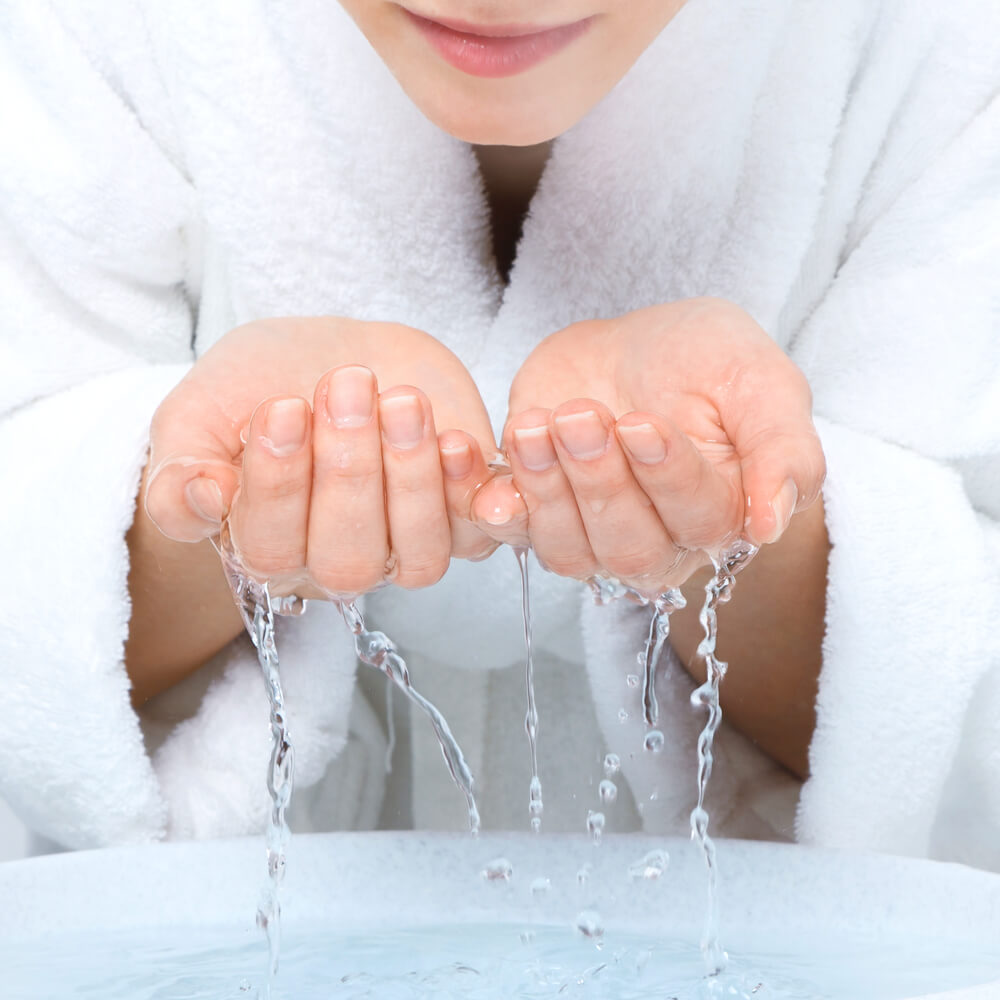What Is Hard Water?
Most people have preferred brands of skin products because they find different products affect their skin. However, your water can also have negative impacts. So, what is hard water? By definition, water becomes hard water when it has high mineral content. While mineral water is good for you to drink, some minerals are overly harsh, which can have negative impacts.
How Does Hard Water Negatively Impact Your Skin?
You will probably notice the effects of hard water fairly soon, especially if you are not used to it. Hard water prevents soaps from fully lathering, and can even result in a poor rinse of your hair and body. If your skin feels dry, irritated, or itchy despite showering, you likely have hard water. In fact, 85% of Americans have hard water, including most homeowners in New Jersey. Over time, these minerals can build up, causing it to look ashy or unhealthy. Leftover soap scum builds up in a residue as well, clogging pores which often results in acne.
If you have sensitive skin, you are more prone to the effects of hard water. Just wearing clothes that have been washed in hard water can cause excess irritation. Individuals who suffer from complications such as eczema, acne, or dermatitis will notice more frequent flare-ups when they use hard water. Read more about how hard water can negatively impact your skin here.
Ways to Combat Hard Water
There are several ways to combat hard water in your home, although theyhave varying effectiveness. If the water pressure in your shower is lacking, odds are good calcium buildup from your hard water is to blame. Using a simple solution of 1 part vinegar and 3 parts water to soak showerheads in can break up harmful buildup. However, using vinegar will not keep the buildup from reoccurring. It only works as a good cleaning solution. Other cleaning solutions, such as appliance and pipe cleaners, can remove the buildup. This is only for cleaning purposes though. As a last ditch effort, many turn down their hot water temperature. The minerals in hard water build up much more quickly when the water is hot due to the process of mineral precipitation. However, this is obviously inconvenient.
None of these methods actually help negate the effects of hard water on your skin. To fix the problems of hard water instead of just cleaning up the mess it leaves behind, you will need to soften your water. This is achieved through a water softening device or system. There are several kinds of systems that help achieve this process, from water softeners to reverse osmosis to chlorination systems. These systems give you all the benefits of soft water, with little effort on your behalf. You can forget cleaning with vinegar, spending money on costly chemical cleaners, and enjoy your water at whatever temperature you prefer. For more information from the industry’s leader in combating hard water, visit Advanced Water Softening.
Benefits of Water Softeners for Your Skin
There are many benefits of water softeners. Aside from providing clean, drinkable water, soft water contributes to longer appliance and plumbing lifetimes. Clothes last longer, too. Many people overlook the benefits of soft water. Soap lathers easier in soft water, and washes away easier as well. This results in smoother skin and less money spent on detergents and soaps. Additionally, soft water can retain more moisture. Hard water dries it out, but soft water makes skin healthier overall.
Conclusion
If you are ready to learn more about how you can improve your family’s health, reduce wear and tear on your home, and enjoy all the benefits of having soft water, contact us today! Get a free water test on us!






